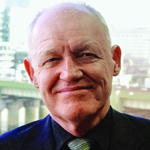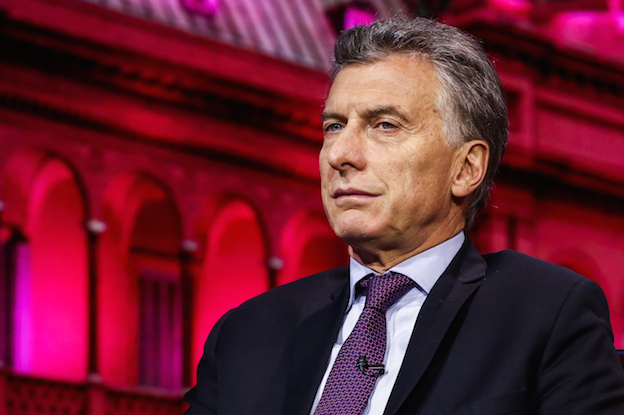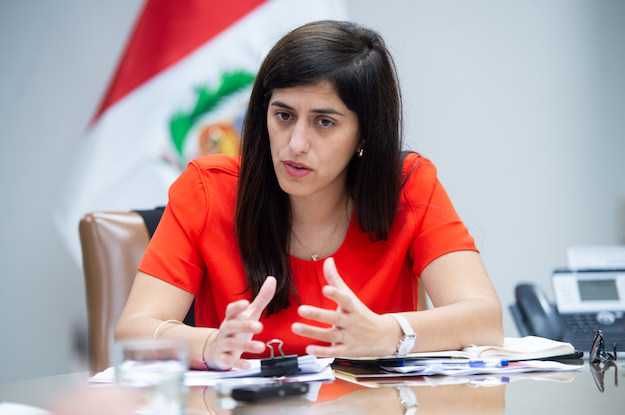Correction appended below
BUENOS AIRES – The bets being made on Argentina right now almost defy imagination.
Norwegian, the low-cost European airline, made one of the most striking ones a couple of months ago, announcing a plan to plow in no less than $4.3 billion – yes, that’s the right number – into Argentina, creating over the next few years many new international links for Buenos Aires and a string of provincial capitals. Oil and gas companies seem to be falling over themselves in the rush to get involved in the Vaca Muerta shale fields of Patagonia. And fund managers are equally enthusiastic, highlighted last June by the way they snapped up a 100-year bond – effectively lending fresh money to a country that historically has serially defaulted on its debts, and when it did so most notoriously – in 2001 – was responsible for the world’s largest-ever sovereign default.
The market’s exuberance is leading to some extravagant political claims too. After last October’s successful legislative elections, when President Mauricio Macri’s Cambiemos (“Let’s Change”) coalition won 19 seats, some of the president’s supporters are already boasting that Macri is a lock to win re-election next year. Some even declare that Maria Eugenia Vidal, the governor of the province of Buenos Aires, and the country’s most popular politician in recent polling, is a shoo-in for the 2023 contest. The most bullish Macri enthusiasts are pointing to the prospect of two decades of stable pro-business government, enough perhaps to get the country back on the long-term road to prosperity that it left about the time of the first world war.
These are big calls. And I’ve been writing too long about Latin America not to be a tad skeptical. I’ve seen too many false dawns in Latin America, witnessed more than once the stunning speed at which market sentiment can turn. In Argentina I watched as a close observer between 1998 and 2001 as optimism about Argentina first gave way to nagging doubts, then stumbled into stagnation and finally disintegrated into economic chaos and political crisis.
During a visit to Buenos Aires earlier this year, many Argentine friends warned me not to be taken in by all the bullish talk. They pointed to the way the country is borrowing again rather than moving decisively to balance its books and remains very dependent on inflows of capital from abroad, a dangerous vulnerability at a time when U.S. interest rates look set to rise. They worried about inflation that is still running at more than 20 percent per year. Targets adopted when Macri first came to government in 2015 have been regularly missed. Trade unions, they said, were lining up to negotiate wage increases in a way that is ominously familiar for anyone familiar with the country in the 1980s.
“They are doing exactly the same as liberals have done in the past and we’ll see exactly the same pendular swing back to Peronism when it breaks down,” one friend – a very sober minded public-sector lawyer – told me. Going further back in history, it is easy to see this government’s policies as the latest round in the battle between liberalism and nationalism that has dogged Argentina since the country acquired its independence from Spain at the beginning of the 19th century.
Even so, I think there are two reasons to believe that – to use a very dangerous term – it could be different this time. First, the government’s commitment to pragmatism is impressive. That means they may avoid some of the faulty political calculus that has wrecked similar experiments in the past. Second, there are some longer-term shifts going on in Argentine society that work in Macri’s favor. This shouldn’t be exaggerated, but it seems possible that politics could become less polarized.
The caution of an engineer
“Gradualism” – the Macri government’s watchword – is to some extent a tactical adjustment to circumstances. Even after the October mid-term elections, this is still a minority government that depends on support from some of its political opponents. But there is also something more strategic about this slower approach. Macri and his team know that they need to reduce imbalances and distortions – the dreaded twin fiscal and current account deficits – if they are to make the country viable, but they know that this can’t be done overnight.
If they move too quickly and try to do things overnight they will trigger opposition and derail progress. By training Macri is an engineer – like the leaders of the Chinese government – and perhaps that makes him, like them, predisposed to the idea of slow steady adjustment rather than the shock treatment that was so popular in the 1990s. Moving too quickly might stress the system, producing a reaction that could block change.
Macri’s associates told me they are desperate to avoid the traumas that have regularly punctuated Argentine politics over the last 100 years or so.
“Governments that came after the populist cycle usually had to work with a huge fear and resentment incubating in society,” said Marcos Peña, the president’s 40-year-old chief of staff. “Each time it was worse, each time there was a cumulative problem, more and more frustration and resentment that always gave birth to a new ever-more assertive populist leadership.”
Macri’s government is unashamedly pro-business. It is chipping away at state spending which in the last decade and a half has swelled to reach more than 40 percent of GDP. Fiscal policy is much more cautious than it was under the Kirchners, with the primary deficit – before debt costs – gradually falling. The administration has begun to remove the subsidies that have kept the prices of electricity, gas and public transport at artificially low levels and made it had to attract capital to these sectors.
But the team is doing its best to keep potential opponents happy. Macri and his team are maintaining much of the social spending introduced under the Kirchners. Infrastructure is being prioritized. The aim is to steadily increase the size of the economy – at between 3 and 4 percent per year over the next two decades – and to create jobs. “The transformation of infrastructure is non-negotiable,” said Peña, arguing that this proved a successful formula when the same team were in charge of the city of Buenos Aires between 2007 and 2015. “If we don’t have roads and sewers we are not going to make growth sustainable. And everything we do is based on growth.”
A retreat of traditional parties
Gradualism might be more viable because there are signs that Argentine politics are becoming less polarized as the political establishment reacts to the successive swings between liberalism and populism.
Both parties that dominated governments for the last seven decades have been much weakened. Cristina Fernández de Kirchner, the former president whose preferred successor lost to Macri in 2015, retains the support of her leftist Peronist faction – now represented in the Citizen’s Unity Party. But this more ideological left-wing group has little in common with the more conservative and more pragmatic wing of the movement. Several of the 14 Peronist provincial governors have formed an alliance with Macri. Meanwhile, the Radicals, a liberal social democrat party which almost disappeared after the disasters of the 1990s, is part of the Cambiemos coalition that backs Macri. But the Republican Proposal – or PRO, Macri’s own party – is the more dominant partner.
Alejandro Catterburg, founder of the Políarquía consultancy who is sympathetic to the government, argues that Argentine politics is undergoing a great “mutation,” with the traditional two-party rivalries giving way to more complex patterns and alliances.
Making that more likely is another shift: the entry of a new generation that sympathizes with neither of the traditional camps. “Ninety percent of the people running the country at the moment were outside politics 10 to 15 years ago,” said Catterburg. This generation grew up in response to the crisis of 2001. If you ask me what’s new the first thing is that those who are running the country are new.”
It is hardly surprising perhaps that the government’s leading politicians are very different in style from their predecessors, both more informal and open to international experience. “When (President Raúl) Alfonsín was president leaders were proud to show that they had never left the country. Menem went (out in) to the world, (but) he was like a new tourist, travelling for the first time and didn’t really understand it,” said Peña. “This is the first time in our history that a generation that has grown up with the vote” has been able to reach power.
Young faces emerge
Take Fernando Iglesias, a journalist and human rights activist who was recently elected to be one of PRO’s deputies in October. A former professional volleyball player and coach, he seems to be typical of the kind of people who have come into Argentine politics in the last decade and a half. Like the former British prime minister Tony Blair, Iglesias says the big division in the world today is not between left and right, but between those who favor engagement with the global economy and those who oppose it.
“We are seeing a growing division between nationalist populism whether it is Podemos (Spain’s far left coalition) or (Marine) Le Pen (the leader of France’s National Front). We are a convergence of Republican democratic forces which see a common threat. We are like the big German coalitions,” Iglesias said. He says that despite their left-wing rhetoric, many of Argentina’s trade unions are narrowly defensive and prepared to resort to corruption and violence to defend sectional interests. “It is one of the great problems the government faces: how to dismantle these mafias.”
There’s also Francisco Quintana, PRO’s 35-year-old national organizer, and a deputy in the Buenos Aires provincial assembly. Quintana said he was inspired by the Que se vayan todos (“They all must go”) movement that shook the political system in 2001-02. A student in Buenos Aires at the time, Quintana said he had “no sympathy for any party. “I was just prejudiced against the old ones. I liked PRO because it was new.”
In building the new organization, Quintana and his colleagues have sought to break with traditional methods – big rallies and marches, in favor of the kind of regular individual contact with voters that is typical of developed democracies. “Our main adversary was neither a leader nor a party. It was resignation, and apathy and the myth that countries like ours are always governed in the same way. For the traditional parties, their main political tool was to look to the past and base their leadership on the idea of confrontation.”
Ultimately, though, it’s the government’s caution that might make this experiment more viable. Peña sums it up. “We are cautious in a way. Sometimes we look at the world’s optimism towards us as a little bit exaggerated.”
A previous version of this article misstated the date of Argentina’s most recent default.
—
Lapper is an independent journalist and consultant. He is an associate fellow at Chatham House in London and a former Latin America editor at the Financial Times.









